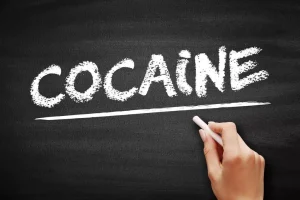
Under all circumstances, recovery takes time because it is a process in which brain cells gradually recover the capacity to respond to natural sources of reward and restore control over the impulse to use. Another widely applied benchmark of recovery is the cessation of negative effects on oneself or any aspect of life. Many definitions of recovery include not only the return to personal health but participation in the roles and responsibilities of society. Many people mistakenly believe that motivation should always be high and unwavering. The reality is that it’s natural for motivation levels to fluctuate.
Importance of motivation in addiction recovery

In the throes of addiction, it’s not uncommon for individuals to feel disconnected from what truly matters most to them. Activities, relationships, and principles that once held significant importance might have taken a back seat to the pursuit of addictive behaviors. SMART Recovery’s Hierarchy of Values (HOV) tool is designed to bridge this gap, helping you reconnect with your authentic self and realign your daily actions with your deepest values. The cons of recovery may seem like a lot at first but with every con, there is a pro and in harder times it is important to remember why you are choosing to make this change for yourself.
Develop a Structured Schedule

The remainder of this TIP examines how motivational interventions, when applied to SUD treatment, can help clients move from not even considering changing their behavior to being ready, willing, and able to do so. Most people who misuse substances progress through the stages in a circular or spiral pattern, not a linear one. Individuals typically move back and forth between the stages and cycle through the stages at different rates, as shown in the bidirectional arrows in Exhibit 1.3. However, most people do not typically return to the Precontemplation stage to start over again (Connors et al., 2013) and are unlikely to move from Precontemplation back to Maintenance.
What are the potential long-term health problems associated with chronic substance use?
Overall, overcoming challenges and triggers in recovery needs perseverance, self-reflection, a strong support system, effective coping strategies, resilience building, and learning from setbacks. Incorporate these in the journey towards sobriety; then, obstacles can be overcome. The long-term health effects of addiction are vital to consider when going for recovery.

Resources and treatment options for personalized addiction recovery

But cravings don’t last forever, and they tend to lessen in intensity over time. • Meaning and purpose—finding and developing a new sense of purpose, which can come from many sources. It may include rediscovering a work or social https://ecosoberhouse.com/ role, finding new recreational interests, or developing a new sense of spiritual connection. The important feature is that the interest avert boredom and provide rewards that outweigh the desire to return to substance use.
The underlying assumption pervading these early treatment approaches was that alcohol and drug addiction was either a moral failing or a pernicious disease (White, 2014). Employment is virtually essential for having a stable and meaningful life. A lack of positive references and having a criminal record typically pose challenges.
- Following the SMART criteria (Specific, Measurable, Achievable, Relevant, Time-bound) ensures that goals are practical and actionable.
- Today, greater emphasis is placed on identifying, enhancing, and using clients’ strengths, abilities, and competencies.
- The remainder of this article will delve deeper into specific ways you can develop intrinsic motivation.
- The important feature is that the interest avert boredom and provide rewards that outweigh the desire to return to substance use.
- Staying connected to a higher power can give people the strength to avoid drug or alcohol use and commit their lives to sobriety.
Ways to Stay Inspired on a Recovery Journey
Another critical factor in maintaining recovery motivation is creating a support system. This support system can include family, friends, and addiction treatment professionals. Building a solid support system can motivate addiction recovery by providing accountability, encouragement, and a safe, non-judgmental space to discuss challenges and successes in recovery.
Science Daily: Mind & Brain
- Just like a steamship needs constant refueling to keep the engines running, recovery needs a steady stream of motivation to keep the momentum going.
- The addicted person is unable to take hold, but not ready to accept aid from outside.
- Substance abuse can also lead to violence, trauma, injury or diseases such as HIV.
- Many people with SUDs do not seek specialty addiction treatment but often enter the healthcare system through general medical settings.
- If addiction has been an issue, the goal to “maintain sobriety” is a must to include.
There will be days filled with enthusiasm and clarity, and others where apathy and confusion reign. Accepting this fluid nature of motivation, rather than resisting it, can be the first step in ensuring that it remains a constructive force in your addiction recovery journey. Many factors can trigger relapse among people in recovery, including cravings, memories and stress. Finding motivation to achieve and maintain abstinence from drugs and alcohol is a critical first step to getting sober. The inspiration to live a sober lifestyle can come from loved ones, from people in similar situations or simply from thinking about the consequences of substance use. Feeling good and taking care of your mental health are huge factors in determining your motivation to recover.
In this article, we will explore the importance of motivation in addiction recovery and the specific challenges that arise when trying to maintain it. By understanding these dynamics, we can gain insights into how to recovery motivation effectively stay motivated when faced with the difficulties that may arise throughout the recovery process. Strictly speaking, sobriety is the state of being sober—not being under the influence of alcohol or drugs.










